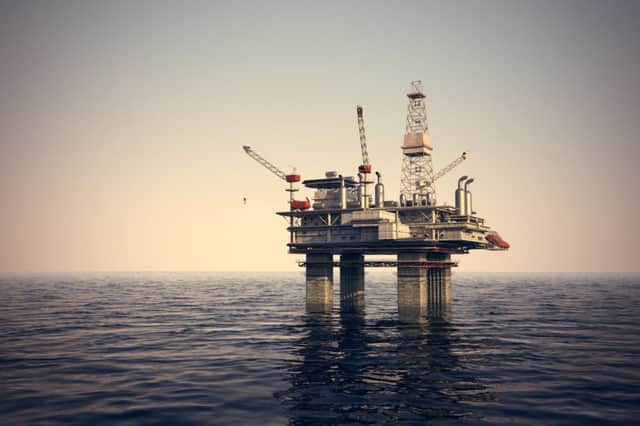£1.5bn Catcher field approved for North Sea


Operator Premier Oil said the field, located about 124 miles east of Aberdeen, is expected to produce 96 million barrels of oil, with a peak production rate of some 50,000 barrels a day. First oil from the scheme is targeted for the middle of 2017.
According to the Department of Energy & Climate Change, daily output from UK offshore oil fields runs at more than 700,000 barrels, and Westminster energy minister Michael Fallon said Catcher’s go-ahead “shows that there continues to be an extraordinary level of interest in North Sea oil and gas, which is excellent news for industry and for the whole of the UK”.
Advertisement
Hide AdAdvertisement
Hide AdHe added: “The project represents over £1bn of investment and almost all of the subsea expertise and equipment needed for this development is being supplied by British companies right across the country.”
The project will involve the drilling of 22 subsea wells on the Burgman, Catcher and Varadero fields, which will be tied back to a leased floating production storage and offloading vessel, operated by BW Offshore.
Simon Lockett, the out-going chief executive of London-based Premier, said: “Having discovered Catcher in 2010, we are extremely pleased to have brought the Catcher area through the development approval process. Once on-stream this project, which has been facilitated by the government’s small field allowances, will underpin our growing cash flows.”
Danny Alexander, the Chief Secretary to the Treasury, said the Catcher project will involve £1.5bn of investment and create more than 1,000 jobs as he told delegates at the Oil & Gas UK annual conference that a No vote in September’s referendum “can ensure a brighter future for you and your sector”.
He said: “The UK as a whole can much more easily afford to sustain production and investment in the North Sea.”
Alexander told the conference the North Sea is an “extraordinary economic asset”, generating almost £5bn in corporation tax revenues last year. The oil and gas sector accounts for 2 per cent of the UK’s tax receipts, he said, but would make up almost 14 per cent of the total for a separate Scotland.
Holyrood energy minister Fergus Ewing, who plans to meet Premier next week, said: “With up to 24 billion recoverable barrels with a potential wholesale value of £1.5 trillion, more than half of the resources in the North Sea, by value, are still to be extracted. It is clear that the industry will make an important contribution to the Scottish economy for decades to come.”
Premier owns 50 per cent of Catcher, with Edinburgh-based explorer Cairn Energy holding 30 per cent and MOL Group of Hungary owing the rest. Cairn Energy last month said it had reached a “key milestone” for the development of Catcher and the larger Kraken project after BNP Paribas agreed to underwrite a $575m (£342m) debt facility.
Advertisement
Hide AdAdvertisement
Hide AdFirst oil from Kraken, east of Shetland, is expected towards the end of 2016. The field is estimated to contain about 140 million barrels of gross oil reserves and is 60 per cent owned by EnQuest, which estimates the scheme will support about 1,000 operational jobs a year over its 25-year lifespan.
• Aberdeen-based Wood Group yesterday said that its PSN division is poised to agree a deal with oil and gas firm Enegi to help develop “unmanned production buoys” aimed at maximising output from marginal fields.